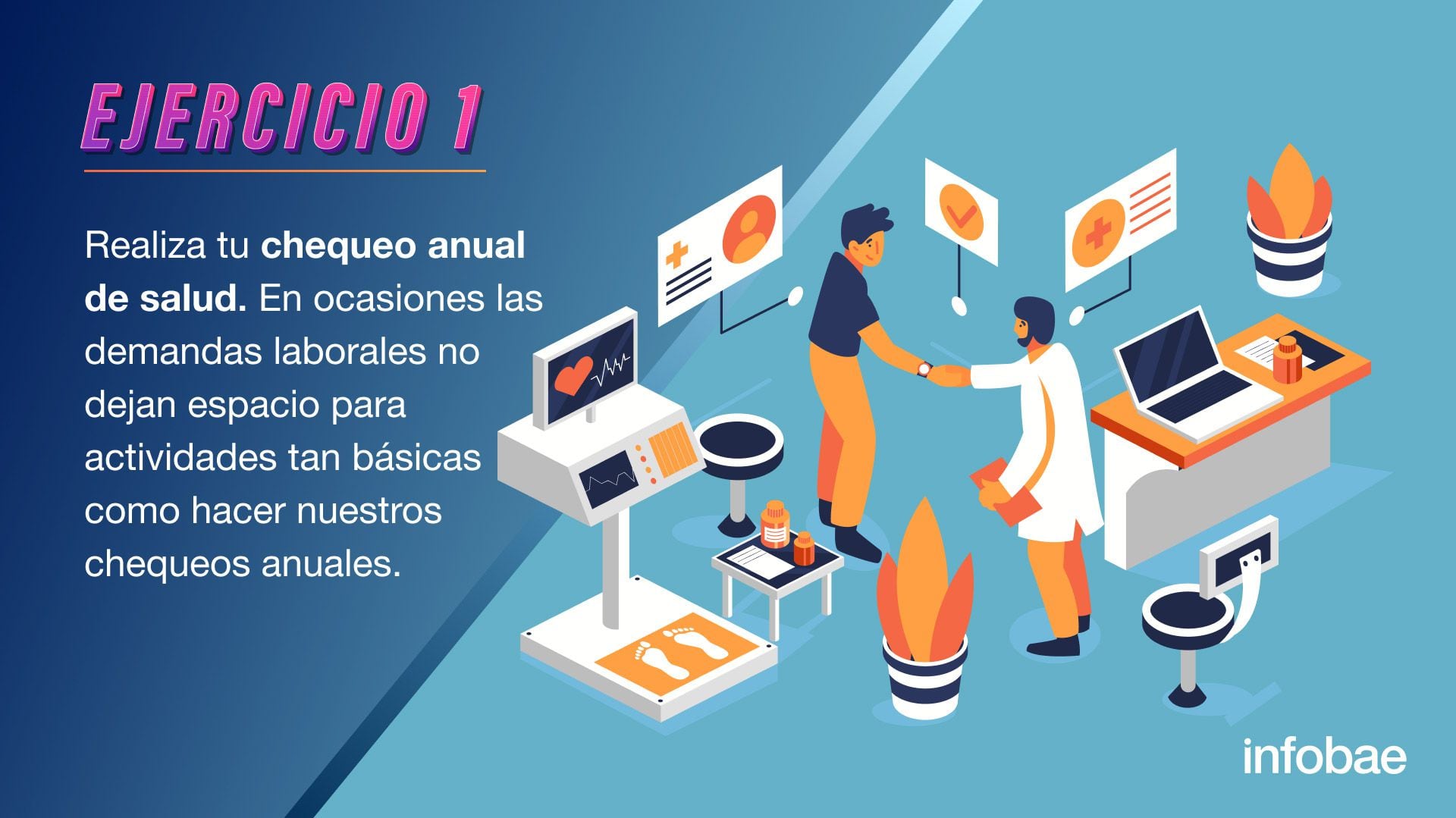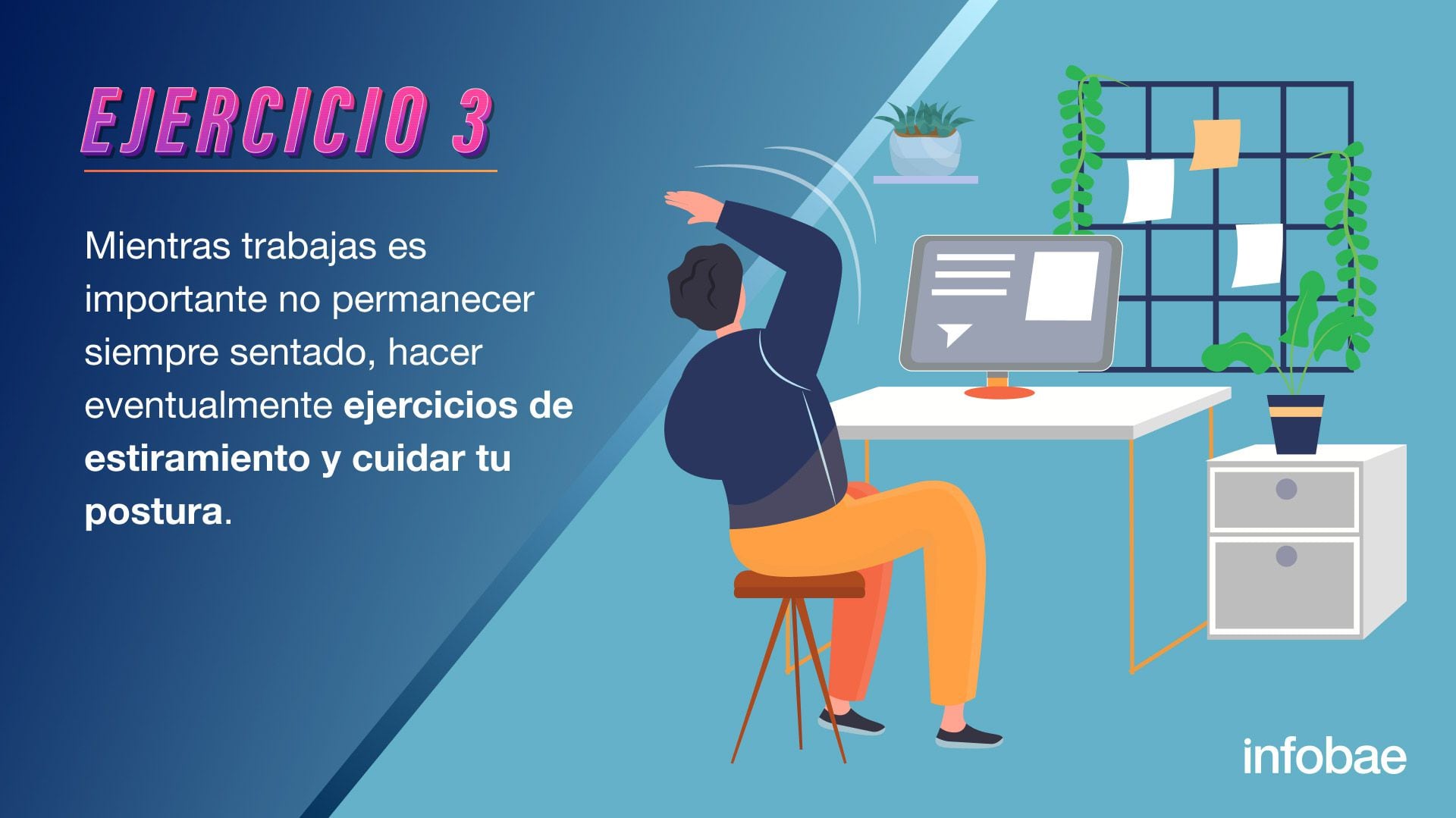
Many of us spend a third of our time at work. If we think that another third should be spent resting, we will soon understand how important it is to cultivate well-being in this area that occupies much of our awake time.
Exclusively for Infobae, Ineco developed a series of exercises and actions to achieve well-being in different areas. Over the next four weeks, practical tips will be developed on how to enhance well-being at work.
While it is clear that the economic benefits generated by our work are important for our well-being, the reality seems to be a little more complex. “Thus, some studies indicate that once basic economic needs are met, a person's economic income does not seem to correlate too much with the perception of one's own well-being and other factors begin to come into play,” Dr. María Roca, director of INECO Organizations, tells Infobae.
Thus, taking care of our body and our rest time, knowing our mind, and managing stress, are some of the variables that contribute to the well-being of people who work in an organization.
“Well-being is cultivated and built. It affects not only the quality of life of workers, but also their performance and productivity. Those who focus on enhancing their well-being will be better prepared to face an increasingly changing and uncertain future and emerge stronger from every challenge and situation that comes their way,” says Roca.

Here is a series of exercises to enhance our work and well-being in the workplace. This week's item is: Take care of your body and your rest time
Science has already amply demonstrated that there is a close relationship between the well-being of the body and the mind. Thus, it is essential that you take care of your general health, maintain a healthy diet, that you exercise and that you respect your hours of rest.

Take your annual health check. Occasionally, labor demands don't leave room for activities as basic as doing our annual check-ups. It is essential that you find your time to do them and that you do it annually.

It is important that, during your working hours, you strive to eat a healthy diet as well. Often when we work we lose track of how and how much we eat. It can help you keep track of what you eat, when you eat it, and have healthy snacks on hand. It's also important that you take time for lunch. When you eat doing something else, you lose track of how much you eat and eat more food.

While you work it is important not to always stay seated, eventually do stretching exercises and take care of your posture. Try to stand at one of the meetings, go for a walk at lunchtime, or use the elevator to get from one floor to another. If your company proposes an agreement with a gym or club, take advantage of it. Physical exercise is essential for physical and mental well-being and is known to have the most diverse benefits.

The few hours of sleep generate irritability, lack of concentration and decreased creativity. That's why it's important that you take care of and respect your rest time. During the day try to reduce stress, take short breaks of about ten minutes to breathe deeply, meditate or do some relaxation exercise.
If you work at home you may even think about taking a little refreshing nap. It is important that you can differentiate your rest time and your working time. Try not to stay connected before you sleep and follow a sleep routine. Try not to drink caffeinated drinks in the afternoon and avoid using screens in bed. Scheduling breaks in your day, wondering how you're doing with your goals, and taking a few minutes to rest also promote your well-being and improve your performance.
KEEP READING:
Últimas Noticias
Debanhi Escobar: they secured the motel where she was found lifeless in a cistern

The oldest person in the world died at the age of 119

Macabre find in CDMX: they left a body bagged and tied in a taxi
The eagles of America will face Manchester City in a duel of legends. Here are the details

Why is it good to bring dogs out to know the world when they are puppies




